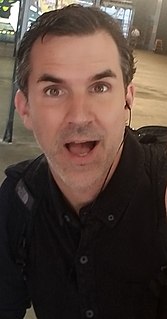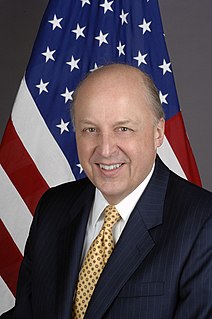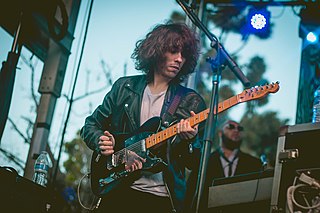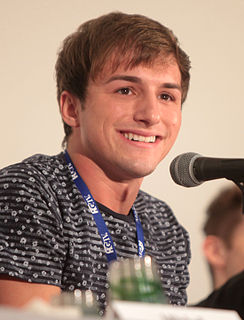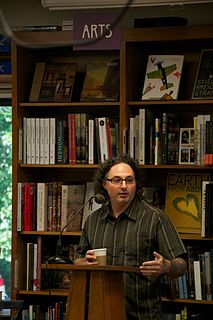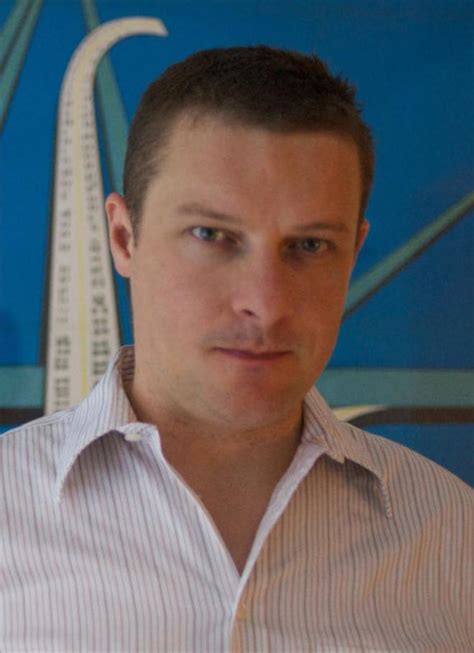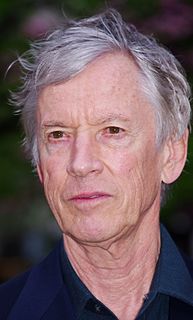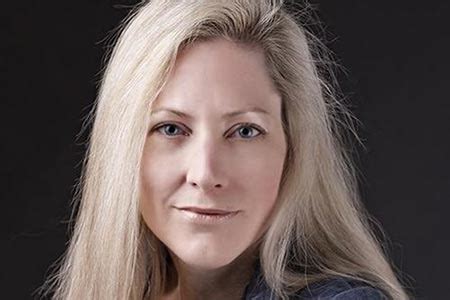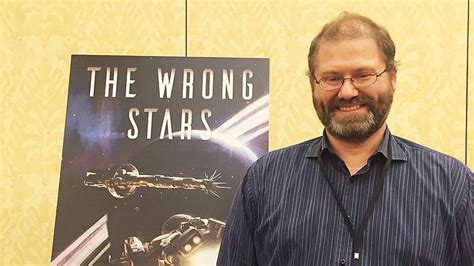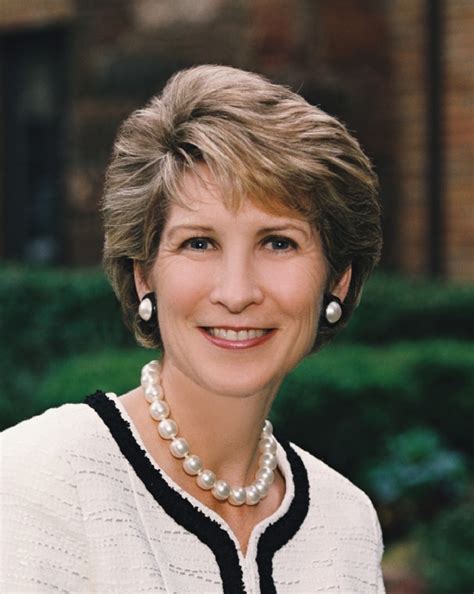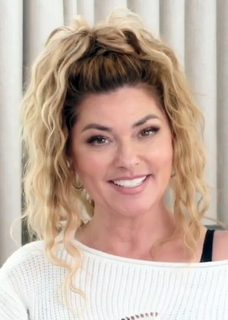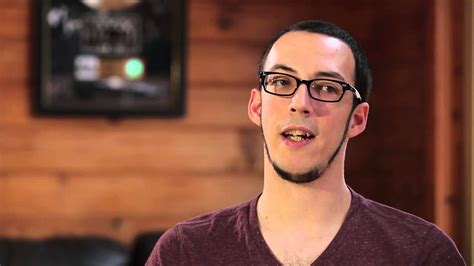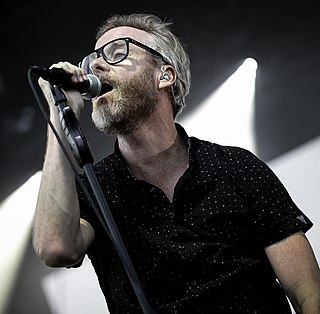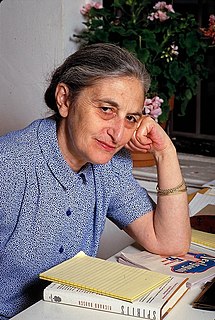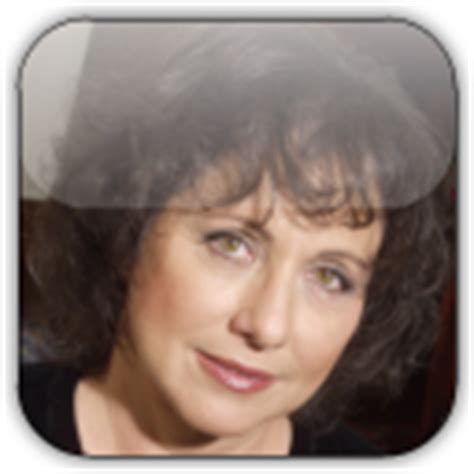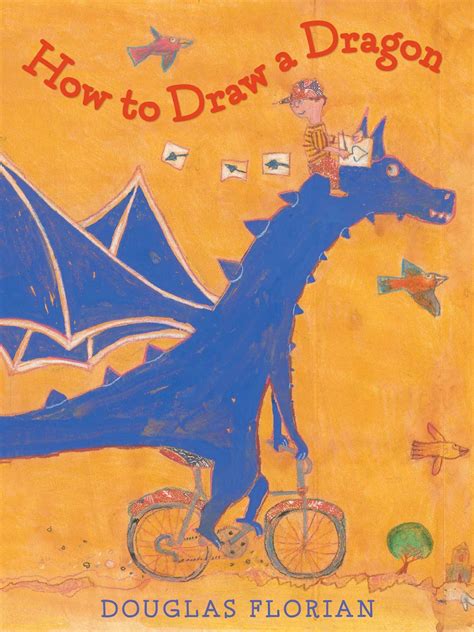Top 858 Editing Quotes & Sayings - Page 14
Explore popular Editing quotes.
Last updated on November 18, 2024.
I think a lot about the editing of the films when we're making them, partly because I studied that, and partly because if you think about being in love while you're supposed to be acting in love, there's nowhere to go. You have to focus on something else and then do what's being asked, and you might get some semblance of something interesting.
It should be obvious that this pattern of systematic holes and gaps in Iraq's declaration is not the result of accidents, editing oversights or technical mistakes. These are material omissions that - in our view - constitute another material breach. It is up to Iraq to prove that there is some other explanation besides the obvious one, that this declaration is just one more act of deception in a history of lies from a defiant dictator.
I don't think a lot of the times Foxygen songs require much editing. Our band rarely records a song and go, "God that sucked. We shouldn't show that to people." We're pretty confident in the way we make music, that rarely falters. We've just been doing it for so long, it's like a science between us. There's not a lot of times where we cut something or decide to not record it.
If I had followed my own rules - if I had eaten my own dog food - I would have created a digital book that is searchable and linkable, that can be corrected and updated and discussed and passed around. But I took my publisher's advance money. Hey, dog's gotta eat. The book publishing industry still works - for now - because it adds value with editing, promotion, sales, and cash.
If you make a film, that magic is not there, because you were there while shooting it. After writing a film and shooting it and being in the editing room every day, you can never see it clearly. I think other people's perception of your film is more valid than your own, because they have that ability to see it for the first time.
Editing should be, especially in the case of old writers, a counselling rather than a collaborating task. The tendency of the writer-editor to collaborate is natural, but he should say to himself, 'How can I help this writer to say it better in his own style?' and avoid 'How can I show him how I would write it, if it were my piece?'
I took a leave of absence from the internet company where I was working and bought a camera and a copy of Final Cut Pro editing software and made my first feature film, "Street Fight." It followed a crazy, racially charged mayoral election in Newark, NJ in which a young guy named Cory Booker was taking on the political machine of that city. It went on to be nominated for an Oscar and Emmy and was a real example of DIY film-making.
What comes first? The melody, always. It's all about singing the melodies live in my head. They go in circles. I guess I'm quite conservative and romantic about the power of melodies. I try not to record them on my Dictaphone when I first hear them. If I forget all about it and it pops up later on, then I know it's good enough. I let my subconscious do the editing for me.
There were definitely scenes I struggled with more than others: the car accident and the thunderstorm are two that come to mind. It's difficult to write about a thunderstorm. There are only so many ways to describe it and our vocabulary is so limited. And the car accident scene required a tense, manic quality that had to be conveyed in the language, as well as the character's dialogue and actions. I was editing these scenes long after I thought I was finished with them.
When I'm editing my work, I'm looking for everything to fit, to feel seamless, for every detail or line of dialogue or scene to feel necessary and organic. I approach the writing of others in much the same way while always working to preserve the writer's voice. To allow myself to be vulnerable on the page, I tell myself no one is going to read my work. There's no way I could put myself out there otherwise.
And so you try your best. Sometimes you go in with one thing, with one desire and come out with something else. In the case of 'The Aviator' it was to create a Hollywood spectacle, but by about the second or third week of shooting you just want to literally survive it. Because don't forget, I also go through the editing process too, and when the film is released I have to talk about it. So, I take all of that very seriously.
Whenever you take a subject you're obsessed with or that haunts you, and make a movie about it, you're converting it into work units that need to be completed. You gotta turn it into a treatment, a script, a grant application, a bunch of forms to be filled out, a shooting schedule, casting sessions, auditions, shooting, editing, music compositions, the film festival circuit, interviews even. And by the time you've finished the process you're so sick and tired by something that was once very precious to you that you're done with it.
Real artists find answers. The knowledge of the artisan is within the confines of his skills. For example, I know a lot about lenses, about the editing room. I know what the different buttons on the camera are for. I know more or less how to use a microphone. I know all that, but that's not real knowledge. Real knowledge is knowing how to live, why we live, things like that.
Editing rooms are kind of, by definition, a bubble of you and the editor and what you're thinking. It's a truth-telling thing to watch it through someone else's eyes, is to get another level of real with your material. Like, "Maybe that's not that funny. Maybe that's not as interesting. Maybe that's redundant to something else. Maybe we can cut down." I don't know. It's a brutal, honest process. You've got to be pretty - You can't be sentimental. You have to be. It's a cold process. You can't be nostalgic. You have to make those tough decisions.
I take editing seriously. It's a joy to edit. I always hand a manuscript to several editors and can't wait to get back their notes and see what they've said. I don't criticize myself for making blunders here and there, because it's just natural. You write in chunks, and you may not remember that that sentence you wrote yesterday had the same word repeated three times. I do enjoy that. I love the feeling of repairing. Repairing is really nice.
I think if the content is good and the content is interesting, the at home viewer will watch it for as long as the story is interesting thus the responsibility for making the story interesting falls on the shoulders of the reporter or the producer. Then I'm disappointed that producers have felt that television can only be told in 59 second story bursts because we've become, it's become journalism based on MTV, video electronic editing and cutting.
When I make a film, I never stop uncovering mysteries, making discoveries. When I'm writing, filming, editing, even doing promotional work, I discover new things about the film, about myself, and about others. That is what I'm subconsciously looking for when shooting a film: to glimpse the enigmas of life, even if I don't resolve them, but at least to uncover them. Cinema is curiosity in the most intense meaning of the word.
I want to get out of the way of the actors. I want to get out of their eye lines. I want to them to stop thinking they're making a movie. I want them to just go and live. It's like you take these great actors and put them in an aquarium of life, and just watch them swim. That's what makes editing tough because you get all these beautiful, unplanned moments.
If you're into writing and making people laugh, or just want to video blog something, you should get a simple digital video camera. And all computers now come with an easy video editing software program. Just mess around with that for a little bit, try to figure it out, then just put stuff online and have fun. Never give up!
I love crosscut parallel storytelling, like we did in Blue Valentine. I love how Alejandro González Iñárritu has done it, and Quentin Tarantino, and Francis Ford Coppola, and all the way back to D.W. Griffith - this parallel editing is an effective way to tell stories. It's like juggling, like keeping a lot of balls in the air and seeing how they come down.
As an actor, you are sort of only in charge of yourself. All you can really control is your performance. You don't know what they're going to do with it in the editing room, what they're going to cut out, which take they're going to use. You know, your control is very limited. As a director, it's ultimately your piece. You have a lot more responsibility, but you also have a lot more creative control. It's scary, but also liberating in a way.
The thing about how that process works is that it's more about the editing and time for judging the ideas. Most pieces I publish each week have been around for months. This is a response to the beginning of the strip, when I was making them so quickly. I would just conceive a piece, finish it, and then the next day see it in the paper. That was when I was doing dailies four days a week.
You never have any idea where your movie's going to go when you're shooting - you're in this little bubble. Everything you care about is getting the next step right: getting the script right, finding the right actors, shooting it. Then you spend half a year in a dark room editing your film, and you don't talk to anybody.
Using film was so much easier than the digital technology of today. But digital is still at the beginning of what it can be and they'll be fixing all those problems. It's just too complicated - negatives, tinting, flashing - it's a whole new system that takes a lot of time. Of course, it's not as physical. Even the editing. You used to feed a piece of celluloid into an editor. [Digital] is not expensive and that is an advantage, but I must say that I don't love it.
I try and shoot as often as I can, I cross shoot. I have at least two cameras rolling at the same time. So I'll have two actors or two sets of actors at a time so everybody's basically on camera. So when they improvise we have everybody's coverage. And you can then go in the editing room and find the energy still stays there.
The relationship with actor and director is probably closer to theater, in that, when we record the dialogue, there is very little in the way of the creative collaboration - no cameras, lighting or even locations. Then, once we record, the post process is very similar to the post flow in filmmaking - editing, sound design, mixing, etc. At the end of the day, it's all about storytelling and honing in on a tone by developing a rhythm and structure that suits the storytelling.
I'm really specific in the way that I shoot. I've always had a very good sense of what I need in the editing room. I used to shoot in a way that drew more attention to the camera and I've tried, in each film, to draw less and less attention to the camera. I think when you pay attention to the shots, you're aware of the fact that there's a director.
My metaphor for acting in movies - not on stage because it's completely different on stage - is to put colors on an easel for the director to paint his own painting with in the editing room, long after I've left. You buy me for red and black, so I better give you really great red and black, but if I can give you purple, pink, green and brown too, I will.
The thing for someone just starting off [in writing] is to write. You need to have limber fingers, whether you write with your fingers or you type on your laptop, but you need to have a limber mind and you need to be able to write without judging what you've written, at least right away, and without editing right away.
It is amazing how little effort most people make to improve control of their attention. If reading a book seems too difficult, instead of sharpening concentration we tend to set it aside and instead turn on the television, which not only requires minimal attention, but in fact tends to diffuse what little it commands with choppy editing, commercial interruptions, and generally inane content.
When the cinematography school told me I would have no chance to get a job, I said, "It's irrelevant." My mom was a feminist in the '20s. She taught me to be on my own, to be independent, to do what I wanted to do. I did not believe it would be difficult. It was difficult. In '66, I almost starved for a year and a half, and the only way I did not starve was because I could not find a job in camera, but I found a job in editing.
I love drafting like I love eating ice cream or having sex; I love revising like I love doing logic puzzles; I love line-editing like I love perfectly organizing a bookshelf; I hate reviewing copyedits and the second round of proofreading because, by then, I'm getting pretty tired of my own words. They all have their own challenges, though.
After a while, being so honest and so vulnerable on the page ends up affecting my own kind of self possession in the world, because I am not afraid of myself and my own thoughts. I think so much of being a woman, of being a social being, of being polite, is quieting those thoughts. There's so much we try not to say as we go through the day. There's a lot of tempering and self-editing. It is a relief to make writing that space where I don't need to do that.
Writing is so... I don't know, it's such a practice, and I feel very unpracticed in it, because I'm not doing it every day. And I really need to do it every day. In other words, you spend all this time writing a movie, and then you stop, and then you're shooting the movie, and then you're cutting, and a year and a half goes by, because in the editing room, you're not writing.
Why, it appears that we appointed all of our worst generals to command the armies and we appointed all of our best generals to edit the newspapers. I mean, I found by reading a newspaper that these editor generals saw all of the defects plainly from the start but didn't tell me until it was too late. I'm willing to yield my place to these best generals and I'll do my best for the cause by editing a newspaper.
Make no mistake, the organizations website counsels. You will be writing a lot of crap. And thats a good thing. By forcing yourself to write so intensely, you are giving yourself permission to make mistakes. To forgo the endless tweaking and editing and just create. I am not the first person to point out that writing a lot of crap doesnt sound like a particularly fruitful way to spend an entire month, even if it is November.
Ultimately your job as an actor is to perform however you're being asked to perform and there's many different procedures as an actor that you're going to run into that you should be prepared for and be ready to go to work and do the best you can and give the director the best thing you can to hopefully give him things on that day that could be shot preserved and out into a canned, then when they go into the editing room that's where a movie's made.
Do not put statements in the negative form. And don't start sentences with a conjunction. If you reread your work, you will find on rereading that a great deal of repetition can be avoided by rereading and editing. Never use a long word when a diminutive one will do. Unqualified superlatives are the worst of all. De-accession euphemisms. If any word is improper at the end of a sentence, a linking verb is. Avoid trendy locutions that sound flaky. Last, but not least, avoid cliches like the plague.
It's like you might have some great scene that you love but for some reason - and you can't necessarily put your finger on it - the movie's not working or it seems slow or ponderous in some way, and even though it has your favorite scene in there, actually the favorite scene is the culprit. That's the painful thing about editing, is trying to locate those things that are holding the movie back and then having the guts to cut them. And it is painful to do it.
You have to set your own boundaries. We all do. You have to self-check. At the same time, the transparency is liberating. It is so much easier than screening every little thing you do and say. There's got to be some fluidity to self-expression without constantly editing things. The older I get, the more confident I feel in that. The filters are just flung away... lets face it, filters interrupt the flow of sincerity. If you're embarrassed about something you've done, then just say it.
I think I have an obligation, to the people who have consented to be in the film, to make a film that is fair to their experience. The editing of my films is a long and selective process. I do feel that when I cut a sequence, I have an obligation to the people who are in it, to cut it so that it fairly represents what I felt was going on at the time, in the original event. I don't try and cut it to meet the standards of a producer or a network or a television show.
In terms of my career, it began in earnest when I was living in Boston. I started doing my own films, working initially as an editor and editing assistant - briefly - at WGBH, as an editor on other people's movies, trying to get some experience under my belt, but eventually just doing my own short films, doing them my way.
Not only do you need great lyrics, a great message, a great story, great vocals, great chords... you also need great instrumentation, great editing, great sonics, great mixing, and great mastering. It all comes together to make something truly great, and I think each element combines together to create a powerful impact on the consumer.
I re-mastered 'The Conversation' a few years ago for DVD. 'The Conversation' was the first film I edited on a flatbed machine - a KEM editing machine. I've been using Final Cut or the AVID for 12 years now, so I was interested in looking at this film and seeing if I could tell if it had been edited the old way. Truth be told, I couldn't.
During the preproduction when I'm shooting and then once we wrap we go away. And then the visual effects guys take over. And then they add all those little bits and pieces. They come up with ideas during the cut in the editing, and they said while would be really cool if we did this thing here where the blade pops out. So then you see the movie and say wow that's a really neat idea. I wish we would have thought of that.
I started in documentaries. I started alone with a camera. Alone. Totally alone. Shooting, editing short documentaries for a French-Canadian part of CBC. So to deal with the camera alone, to approach reality alone, meant so much. I made a few dozen small documentaries, and that was the birth of a way to approach reality with a camera.
Even if I'd stayed [in the US to finish 'The Magnificent Ambersons'] I would've had to make compromises on the editing, but these would've been mine and not the fruit of confused and often semi-hysterical committees. If I had been there myself I would have found my own solutions and saved the pictures in a form which would have carried the stamp of my own effort.
Winston worked in the RECORDS DEPARTMENT (a single branch of the Ministry of Truth) editing and writing for The Times. He dictated into a machine called a Speakwrite. Winston would receive articles or news-items which for one reason or another it was thought necessary to alter, or, in Newspeak, rectify. If, for example, the Ministry of Plenty forecast a surplus, and in reality the result was grossly less, Winston's job was to change previous versions so the old version would agree with the new one.
The nice thing about a documentary, I think, is that so much of it is editing, too. You sort of get to keep making decisions. It's not as much like when you do a narrative, fictional piece, and you have a certain number of shooting days, and you're like, "Well, that's what it is." You can continue to seek out more photographs or try to find more footage. The genre gives you the ability to keep working on it, which is great for a first-time director.
A perfect movie is a different thing, but a funny movie is easy. I was really happy that I got everyone that I got. Everybody got to play to their strengths and was paired up in the right scenarios. It was very fortunate. It was exciting, the whole process. It makes more difficulty in editing 'cause there's more footage, but the guy I had handle it was a documentarian editor for a long time, so it was very useful.
It's great we have a female Thor. It's great we have a black Captain America. But those are just optics; it's optics of change... Unless you have the structural diversity, the structural change behind the scenes - more women, more people of color actually calling the shots and editing these books - those optics won't last.
When I'm editing, I tend to cut, go back over it, cut, go back over it, cut, so by the time I'm done, even with a cut, I don't have a rough cut and then work on it so much. I have a pretty rigorous cut of the movie that's usually in the range of what the final movie is going to be. It doesn't mean I don't work on it a lot after that, but I get it into a shape so I feel I can really tell what it needs, or at least it's ready to show people.
When I have just sat down and tried to write the lyrics of a song, usually about half of it sounds like bullshit. I just have to go away from something and come back to it again later. I do a lot of editing and switching around and putting little pieces together to get the right mood and personality, and it takes me forever to get a song finished.
Film, for me, is in two stages. One is when I write the script more or less on my own - that's the nice bit. And then comes for me the unpleasant bit when they all go off, 100 people - actors and camera people and film and sound - and I stay away. When they go into the editing room, I come in again, and that's the bit I like.
I was really able to confirm something that I knew on some level before I'd made a film. The best actors know how to really relax. Because in film, a lot of the decisions are made in the editing room, so when you're trying to guide your performance too much - always it's a push and pull because you can't be too relaxed. Too relaxed and it's like, "What are you doing?" Too tense and it's not good either.
Sometimes I think it is ... frustration with life as it is lived day to day that compels me to write such long letters to people who seldom reply in kind, if indeed they reply at all. Somehow by compressing and editing the events of my life, I infuse them with a dramatic intensity totally lacking at the time, but oddly enough I find that years later what I remember is not the event as I lived it but as I described it in a letter.
When I was young I drew constantly in my sketchbooks to learn to see things. My first teacher in school, Gilbert Stone, taught me that you have to see things as they are first. Then you can distort, exaggerate, or re-create the world. I sketch in a small, unobtrusive sketchbook or on any paper at hand. I write on canary yellow tablets or any scrap available. I'm constantly doodling, even while editing my kids' homework, much to their chagrin!
